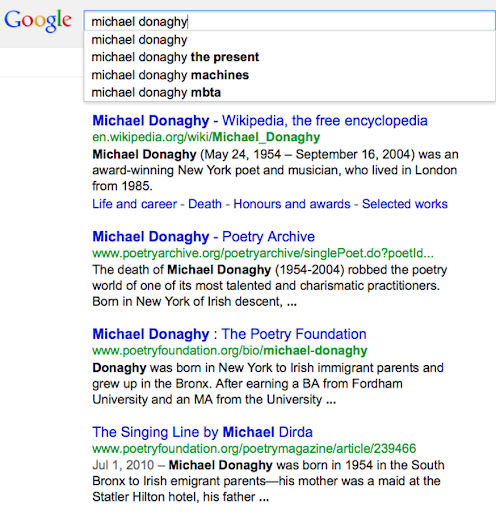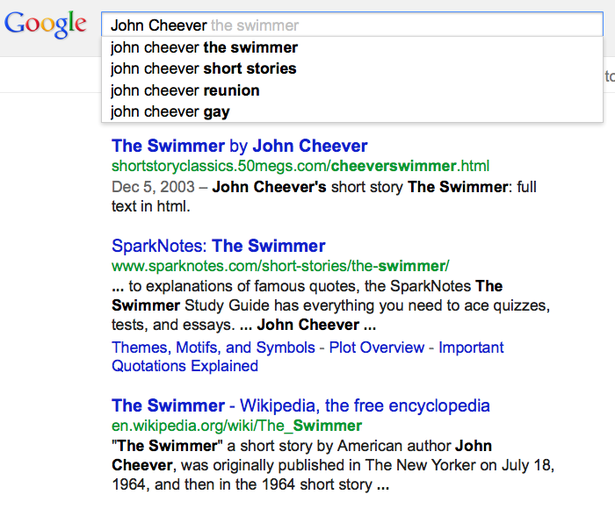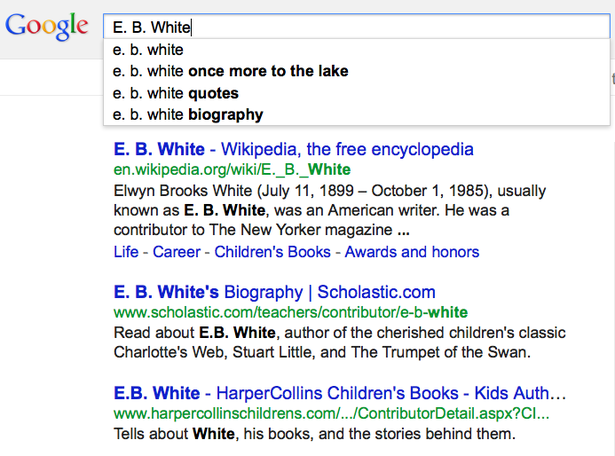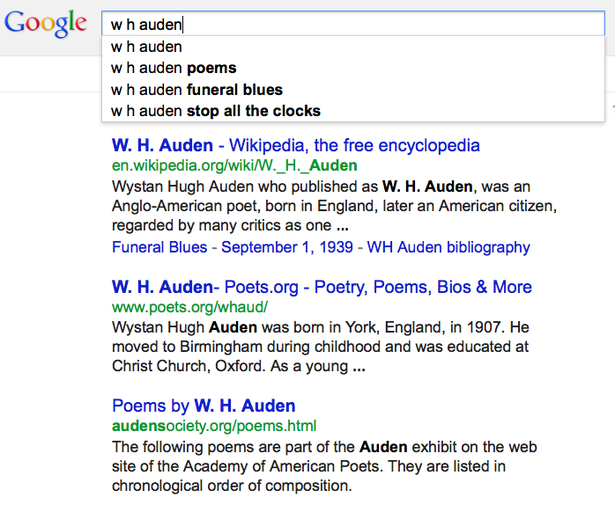Google searches and reception history
A while back the Atlantic Tech Channel’s Megan Garber was entertaining us with adventures in Google’s search-autocompletion features: what she called Google Psyche. (Google gives their own explanation of the feature here, but essentially it makes suggestions for you based on the frequency of previous searches.
Again, all this is pretty funny – but it may even be useful, at least to some of us. Maybe even academics like me.
Recently I was looking for some poems by the late Michael Donaghy, and saw this:

(The “mbta” Michael Donaghy is not the poet.) These results tell me that the two most searched-for poems by Donaghy are “The Present” and “Machines”: the former, presumably, because it might plausibly be read at a wedding, but the latter because – well, because it’s just utterly beautiful, a fabulously intricate yet accessible poetic construction. “Machines” is my favorite poem by Donaghy, but Google’s algorithm suggests that it is beloved by others as well, something I didn’t suspect until I ran that search.
When I searched the name of another poet, Jane Kenyon, here’s what I saw:

It surprised me to bit to find “Otherwise” listed before what I always think of as the definitive Jane Kenyon poem, the simple but perfectly graceful “Let Evening Come”, but actually running the search for “Otherwise” revealed to me that it is often taught in American high schools.
Clearly high-school literature classes contribute heavily to Google’s algorithm, as witnessed by a search for “John Cheever,” whose most anthologized story is clearly “The Swimmer”:

Or E. B. White, whose fine (but in my view somewhat overrated) essay “Once More to the Lake” is taught so frequently that it jumps right to the top of a list from which Charlotte’s Web is completely absent:

But other factors play a role as well. If you do a search for David Foster Wallace, you’ll see that the only work of his that shows up is his Oberlin Kenyon College commencement address “This is Water” – no Infinite Jest, no Pale King – but if you add “story” to your search string you get this:

Clearly the chief interest is in “The Depressed Person,” a 1998 story thought to be revelatory of Wallace’s own experiences with depression.
A search for W. H. Auden shows that the first poem of his people want to know about is “Funeral Blues”, a poem that hardly anyone knew until it showed up in the 1994 film Four Weddings and a Funeral.

It seems to me that this information is not trivial: anyone interested in a particular author or topic could, with sufficient discipline and knowledge of how to make a screen cap, track shifts in public interest and knowledge over time. It would be like Ngrams for searches instead of published material.
Google is of course already providing us with its own accounts of its most searched-for terms, in the Google Zeitgeist; but I’m suggesting the value of tracking searches that don’t rise so high in the public consciousness, but significant to scholars and other researchers who focus on particular topics. Because I’m a literature teacher, I focused here on literature, but this kind of tracking could be done in almost any field. Digital humanists – and social scientists, and historians of science, and Lord knows who else – take note!